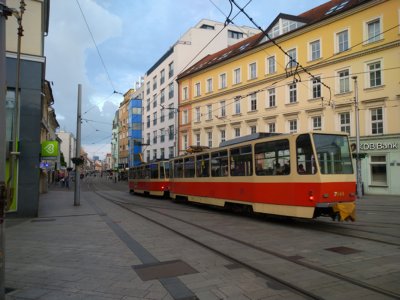Project | Public Transport planning under Uncertainty |
Timeline | 2024-2028 |
Supervisors | |
PhD student |
Provided a network and infrastructure, the planning process of public transport systems typically begins with line planning. This is part of the strategic planning phase concerned with long-term planning and providing the groundwork for timetables, as well as further tactical and operational decisions like vehicle schedules and crew plans.

Line planning involves on the one hand determining the routes a Public Transport line takes through the network, including the stations it serves. On the other hand, also the frequencies and capacities of the lines have to be determined. Clearly, all of these design choices should anticipate the number of passengers as well as the origins and destinations of their trips, i.e. the demand. The demand can be estimated and in most models this estimate is used as the basis for computations. However, these models treat demand as deterministic, while the truth is clearly that it is highly variable. Both the number of passengers as well as the route they choose may change from day to day due to weather, sickness, supply variations or something else entirely. Thus, viewing demand as a random variable and exploiting its probability distribution will result in modelling possibilities adapted to those variations.
This PhD project investigates the impact of random demand on strategic planning in Public Transport. Both the random number of passengers as well as random route choice will be studied, described and used as the basis to build models concerned with line planning which will allow for better solutions, risk management and support for decision making in planning.
